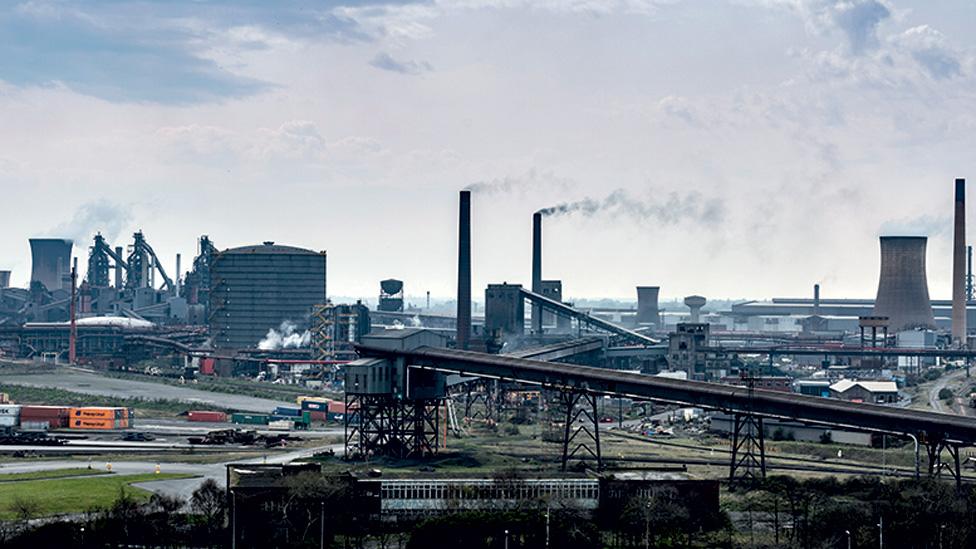British Steel: Three options for government
- Published
- comments

British Steel - the Scunthorpe steelworks with a brand name revived by private investors Greybull - says it needs £75m of government support to avoid collapse.
Business Secretary Greg Clark faces three choices in weighing up whether to intervene:
hand over £75m of taxpayer's money to a private company with a chequered track record that bought the Scunthorpe works for a £1
nationalise it
allow British Steel to go bust with the loss of 4,000 direct jobs and 20,000 more at risk in the supply chain
What are the implications of each of these options?
1. Taxpayer lifeline
The government has already lent this company £120m so why not round it up to £200m to keep the company going?
Well, the first £120m was in the form of a bridging loan - a bridge to a world in which a Brexit deal has been agreed and the company can then receive the back-dated carbon credits that have been withheld pending Brexit uncertainty and settle its £120m carbon emissions bill with the EU. That would allow British Steel to give the government its £120m back.
If the withdrawal agreement had already been passed, the UK would now be in transition/implementation phase, life would be as it was before, and British Steel wouldn't have needed the £120m in the first place.
The extra £75m is different.
This is a straight lifeline to a company that is struggling in the market place and needs extra operating cash to pay wages and keep the furnaces warm. This is the sort of thing the government refused to do for outsourcing companies Carillion and Interserve as it offends Tory principles to prop up failing businesses.
As former Permanent Secretary to the Treasury, Lord (Nick) McPherson replied to me on Twitter: It would be "Further evidence that industrial policy has lurched back to the failed interventionism of the 1970s. If British Steel can't compete at this exchange rate, you have to ask whether it ever will. #badbusiness."
Given steel market conditions, some have said it would amount to shovelling taxpayer money straight into a furnace.
2. Nationalisation
On the very day Labour announced its plans to nationalise the energy sector - to howls of protest by the energy companies and the condemnation of right-leaning free marketeers - this ultimate form of state intervention would be a difficult political manoeuvre.
It would look like handing the Labour Party the moral and political high ground by saying that only the state could save the jobs of workers from the clutches of private speculators who bought this business for £1.
3. Let it go bust
This would perhaps be the traditional Tory party tough love response.
The state is not in the business of propping up failing businesses. The market decides which companies prosper and which do not - simples.
Letting 4,000 jobs go, with another 20,000 in the supply chain, with elections next week? That could see Tory orthodoxy exact a heavy price at the European elections next week in which most expect them to get a drubbing anyway.
There are other options such as temporary nationalisation to support a management buyout or add sweeteners to a prospective trade buyer. Where is the saviour of the UK steel industry Sanjeev Gupta when you need him?
Mr Gupta has bought a string of ailing UK steel plants and nursed some back to health. But he is thought to have been having problems of his own lately with many steel suppliers reporting that payment problems have caused them to ask for money up front for raw materials.
Making steel anywhere in the world is a tough way to make a living right now - over to you Mr Greg Clark, Business Secretary.
- Published14 May 2019

- Published30 April 2019

